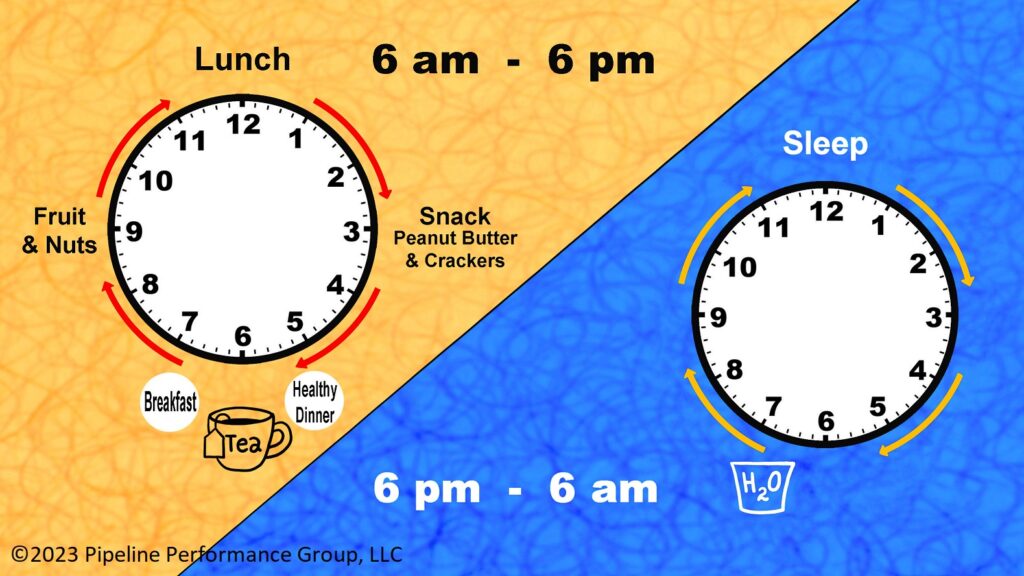Fasting is an ancient practice. It can be described as the absence of food during a prescribed period of time. The Bible teaches the use of fasting as a time of seeking answers to difficult situations or for focusing on spiritual growth. Muslims observe Ramadan each year which is a month of fasting from dawn until sunset.
Intermittent fasting has risen in popularity in recent years because it’s been found to be a safe and effective means for shedding fat and reducing health risks. It’s also known as cyclic fasting or time-restricted fasting. This article is not intended to advocate fasting of any sort, but to provide some basic information for those who may be looking for a simple way to adjust their current eating habits in order to improve their health.
When you eat, insulin is secreted by the pancreas to move sugar into the cells. The bulk of the sugar is stored in the liver and skeletal muscle. When you exceed those storage sites, it’s stored as fat. During a fast, insulin levels are lower and fat storage is used for energy. There are many benefits to lowered insulin levels:
- Improved mental clarity
- Human growth hormone spikes which supports lean muscle mass
- Improved cholesterol profile
- Lowered blood-pressure
- Reduced inflammation
Obesity has reached epidemic proportions in the United States. Paralleling that are escalating rates of preventable diseases. When you overeat, the pancreas and digestive system are taxed and cannot work properly. The result is malabsorption of nutrients from the food you consume. By timing your meals and reducing the number of snacks eaten in a day, you can help lessen the burden on the digestive system.
The first step in making a change is to assess how your current lifestyle choices are affecting your well-being. Try restricting the timeframe in which you eat to put your life’s trajectory on a new path. Intermittent fasting is simple, effective and free. It’s always a good idea to talk with your physician if you have questions or concerns about fasting.
The easiest way to begin time-restricted eating is to avoid food or drink, except for water, unsweetened coffee or tea for twelve straight hours. To achieve more benefit, gradually increase the time of fasting. Most people find the greatest benefit when they eat for 8 hours and fast for 16 hours. Begin gradually to see how you’re feeling and how your body reacts to the change.
The keys to long-term success include hydrating well. Aim to drink at least two liters of water daily. Limit or eliminate alcohol as it has no nutritional value and can weaken your resolve to make good food choices and exercise portion control. Another important key is to choose whole foods that include lean meat, vegetables, and fruit. Avoid highly processed or refined foods, sugary and fried foods as these provide very little nutrition but add excessive fat and calories.
Choose wisely and live well!
MANAGING FATIGUE EDUCATIONAL PROGRAM
Scarlet Knight © 2023 Please Distribute to Others.




